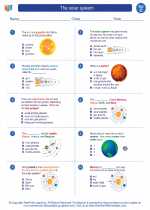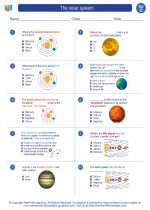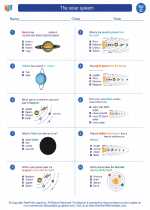Infectious Agents
An infectious agent, also known as a pathogen, is a microorganism that can cause disease in its host. There are several types of infectious agents, including viruses, bacteria, fungi, and parasites. Understanding the different types of infectious agents is essential for understanding how diseases are transmitted and how they can be prevented and treated.
Types of Infectious Agents:
- Viruses: These are tiny infectious agents that can only replicate inside the living cells of an organism. They can cause a wide range of diseases, from the common cold to more severe illnesses like HIV/AIDS and COVID-19.
- Bacteria: Bacteria are single-celled microorganisms that can live in various environments. While some bacteria are beneficial, others can cause diseases such as strep throat, tuberculosis, and food poisoning.
- Fungi: Fungi are a group of eukaryotic organisms that include yeasts, molds, and mushrooms. Certain fungi can cause infections, such as athlete's foot, ringworm, and yeast infections.
- Parasites: Parasites are organisms that live on or inside a host organism and benefit at the host's expense. Examples of parasitic infections include malaria, tapeworm infestations, and giardiasis.
Transmission of Infectious Agents:
Infectious agents can be transmitted through various means, including:
- Direct Contact: Transmission can occur through direct physical contact with an infected person, such as through touching, kissing, or sexual intercourse.
- Indirect Contact: Some infectious agents can survive on surfaces or objects, leading to transmission when a person touches a contaminated surface and then touches their face or mouth.
- Airborne Transmission: Certain infectious agents, such as viruses and bacteria, can be spread through the air via respiratory droplets when an infected person coughs, sneezes, or talks.
- Vector-borne Transmission: Some infectious agents are transmitted through the bites of arthropods, such as mosquitoes, ticks, and fleas, which act as vectors for diseases like malaria, Lyme disease, and dengue fever.
Prevention and Treatment:
Preventing the transmission of infectious agents is crucial for controlling the spread of diseases. This can be achieved through measures such as:
- Good hygiene practices, including frequent handwashing with soap and water
- Using personal protective equipment, such as masks and gloves
- Immunization and vaccination against specific infectious agents
- Proper food handling and preparation to prevent foodborne illnesses
- Environmental control measures to reduce the presence of disease-carrying vectors
Treatment of infectious diseases often involves the use of antimicrobial medications, such as antibiotics for bacterial infections and antiviral drugs for viral infections. In some cases, supportive care and management of symptoms are also essential for recovery.
Study Guide:
To study the topic of infectious agents, consider the following key points:
- Define what infectious agents are and the different types of pathogens.
- Understand the modes of transmission for infectious agents, including direct and indirect contact, airborne transmission, and vector-borne transmission.
- Explore the importance of prevention measures, such as good hygiene practices, vaccination, and environmental control.
- Learn about the principles of treatment for infectious diseases, including the use of antimicrobial medications and supportive care.
- Research specific examples of diseases caused by different infectious agents and their impact on public health.
By mastering these concepts, you will gain a comprehensive understanding of infectious agents and their role in causing diseases, as well as the strategies for prevention and treatment.
.◂Science Worksheets and Study Guides Third Grade. The solar system

 Activity Lesson
Activity Lesson
 Worksheet/Answer key
Worksheet/Answer key
 Worksheet/Answer key
Worksheet/Answer key
 Worksheet/Answer key
Worksheet/Answer key
 Worksheet/Answer key
Worksheet/Answer key
 Vocabulary/Answer key
Vocabulary/Answer key
